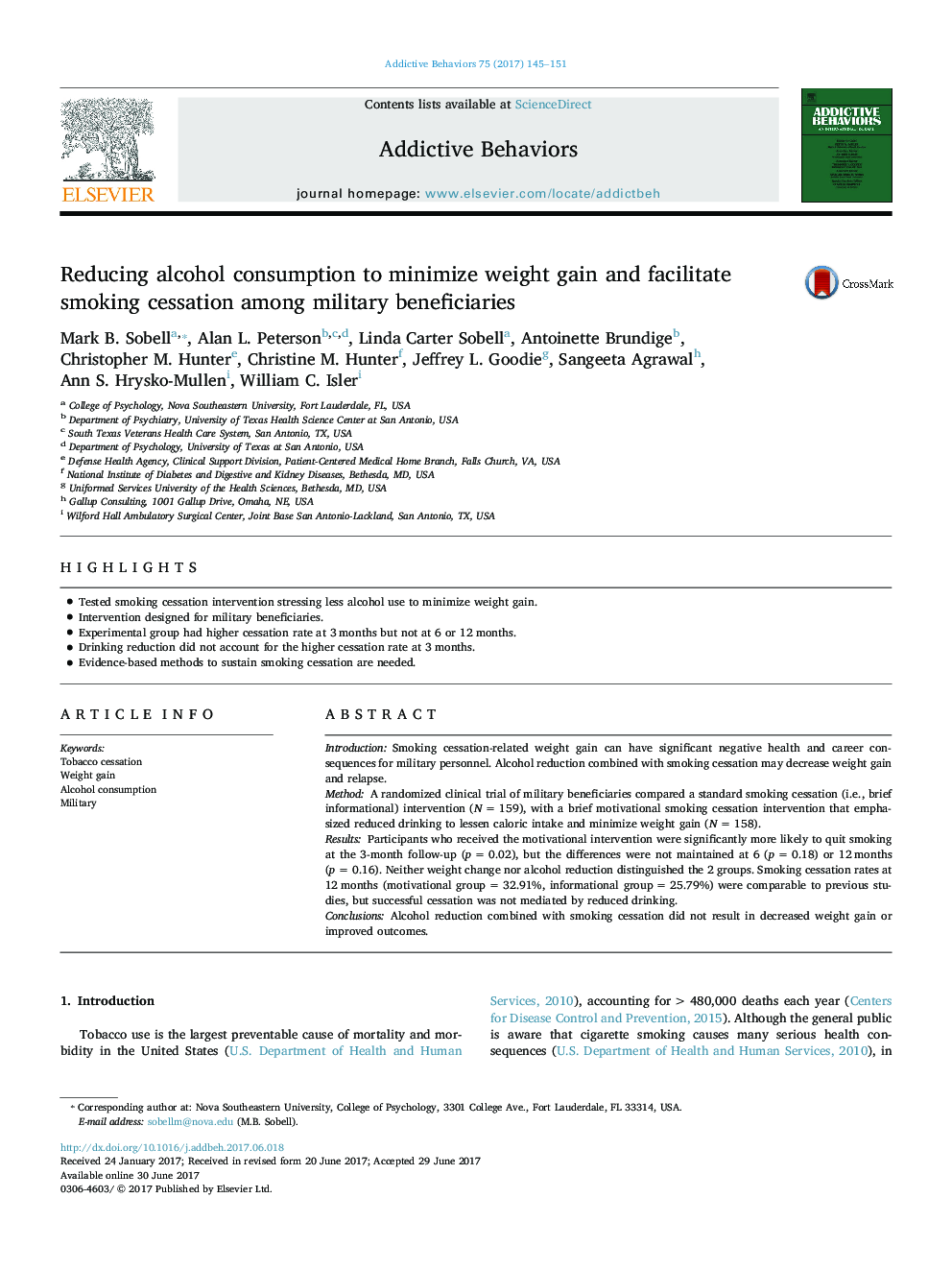| Article ID | Journal | Published Year | Pages | File Type |
|---|---|---|---|---|
| 5037677 | Addictive Behaviors | 2017 | 7 Pages |
â¢Tested smoking cessation intervention stressing less alcohol use to minimize weight gain.â¢Intervention designed for military beneficiaries.â¢Experimental group had higher cessation rate at 3 months but not at 6 or 12 months.â¢Drinking reduction did not account for the higher cessation rate at 3 months.â¢Evidence-based methods to sustain smoking cessation are needed.
IntroductionSmoking cessation-related weight gain can have significant negative health and career consequences for military personnel. Alcohol reduction combined with smoking cessation may decrease weight gain and relapse.MethodA randomized clinical trial of military beneficiaries compared a standard smoking cessation (i.e., brief informational) intervention (N = 159), with a brief motivational smoking cessation intervention that emphasized reduced drinking to lessen caloric intake and minimize weight gain (N = 158).ResultsParticipants who received the motivational intervention were significantly more likely to quit smoking at the 3-month follow-up (p = 0.02), but the differences were not maintained at 6 (p = 0.18) or 12 months (p = 0.16). Neither weight change nor alcohol reduction distinguished the 2 groups. Smoking cessation rates at 12 months (motivational group = 32.91%, informational group = 25.79%) were comparable to previous studies, but successful cessation was not mediated by reduced drinking.ConclusionsAlcohol reduction combined with smoking cessation did not result in decreased weight gain or improved outcomes.
